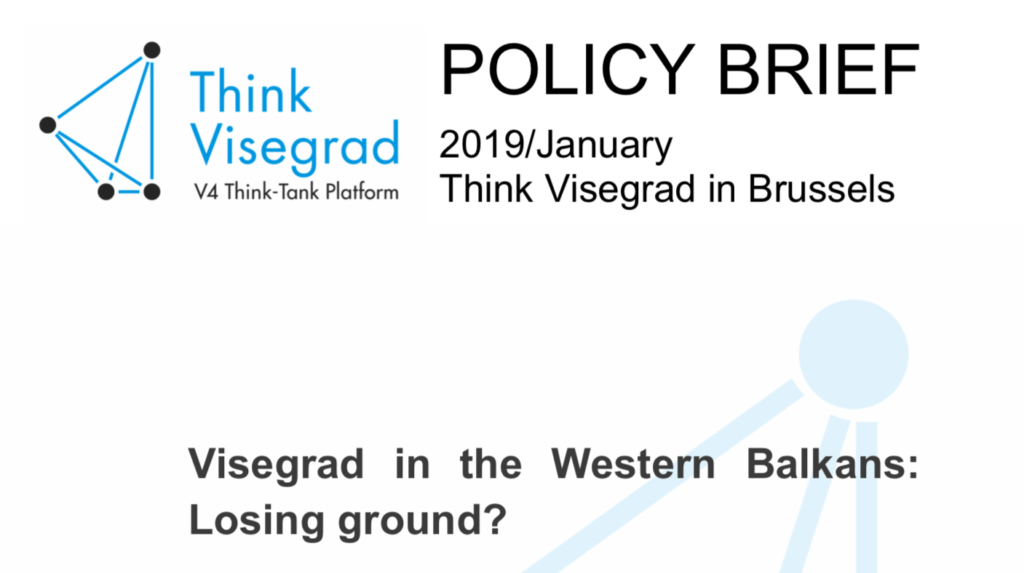Visegrad in the Western Balkans: Losing ground?
Jana Juzová, as part of the project Think Visegrad, published a policy brief on the role of the V4 group in the Western Balkans.
15. January 2019

- The Visegrad countries have since their own accession to the EU been one of the most active European actors advocating for further EU enlargement towards South- Eastern Europe. On the joint Visegrad-level as well as in their own foreign policies, the Western Balkans have a special position; the V4 countries provided them support on their path of European integration with transfer of know-how based on the V4’s own successful experience with economic and political transformation, regional cooperation and Euro-Atlantic integration. However, the Visegrad approach towards the Western Balkans is now being undermined and is losing its legitimacy due to several factors outlined in this paper. In spite of the positive impact of the Visegrad policy towards Western Balkans1, recent trends, such as worsening state of democracy in Hungary, Hungarian PM Orbán’s connections to autocratic leaders in the region (recently granting the asylum to former Macedonian PM Gruevski who escaped to Hungary from a jail sentence at home) are weakening not only Visegrad’s legitimacy as advocate for transformation of the region and its integration into the Euro-Atlantic structures, but also the normative power of the EU. Other V4 countries’ indifference towards this trend coupled with Poland’s new involvement in the Berlin Process framework, another EU member states’ initiative focused on the Western Balkans, only contribute to raising doubts about the commitment and legitimacy of Visegrad’s Western Balkan policy.
You can read the whole publication through the PDF button on the right of this article.





